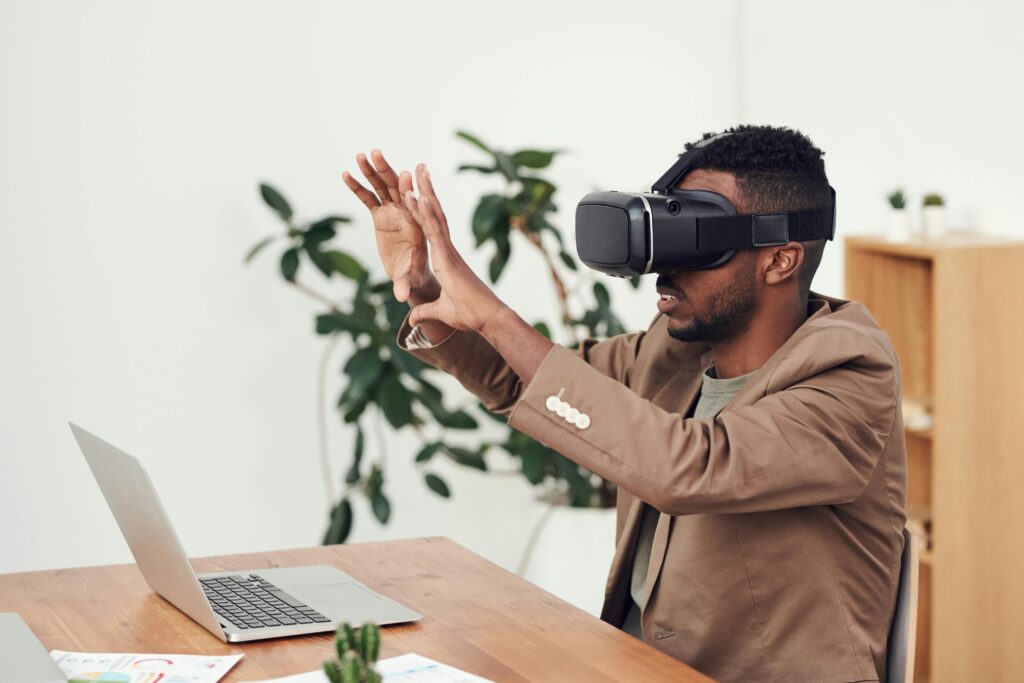In the dynamic digital landscape, several e-commerce trends and key innovations are shaping the future of retail, creating a paradigm shift in how businesses engage with consumers. One of the notable developments is the integration of artificial intelligence (AI) and machine learning (ML) into e-commerce platforms. These technologies are revolutionizing personalization, allowing businesses to tailor the shopping experience based on individual preferences, browsing history, and purchasing behavior.
Moreover, the rise of augmented reality (AR) and virtual reality (VR) technologies is adding an immersive dimension to online shopping. Consumers can now virtually try on products, visualize how furniture looks in their homes, or experience a virtual walkthrough of a store—all from the comfort of their homes. This not only enhances the customer experience but also addresses the traditional limitations of online shopping, such as the inability to physically interact with products.
In the realm of logistics and supply chain management, innovations like drone deliveries and autonomous vehicles are becoming increasingly prevalent. These technologies not only streamline the delivery process but also contribute to reducing carbon footprints and enhancing overall efficiency. Additionally, blockchain technology is gaining traction in ensuring the transparency and traceability of the supply chain, fostering trust among consumers and enabling businesses to uphold ethical and sustainable practices.
Social commerce is emerging as a powerful force in the e-commerce landscape, blurring the lines between social media and online shopping. With features like shoppable posts and in-app purchases, platforms like Instagram and Facebook are becoming integral to the e-commerce journey. This trend capitalizes on the influence of social networks, turning them into interactive marketplaces and enabling businesses to connect with consumers in a more organic and engaging way.
1. Augmented Reality (AR) Innovations for Better Shopping Experiences
Imagine being able to try on clothes or see how furniture fits in your living room without ever leaving your home. Thanks to Augmented Reality (AR), this is now a reality. Retailers are increasingly incorporating AR technology into their e-commerce platforms, providing customers with immersive and interactive shopping experiences.

2. Personalized Recommendations and AI-driven Innovations for Customer Insights
Gone are the days of generic product suggestions. Advanced Artificial Intelligence (AI) algorithms now analyze vast amounts of data to understand individual preferences and behaviors. This allows retailers to offer tailored recommendations, enhancing the overall shopping experience and increasing customer satisfaction.
3. Voice Commerce and Smart Assistants
With the rise of smart speakers and virtual assistants, voice commerce is set to become a game-changer. Consumers can now make purchases using voice commands, making the shopping process even more convenient. This trend is reshaping how customers interact with brands and make purchasing decisions.

4. Blockchain Technology for Enhanced Security
Security concerns have always been paramount in e-commerce. Blockchain technology, known for its robust security features, is being increasingly adopted by retailers. It ensures secure transactions, protects customer data, and builds trust between businesses and their clientele.
5. Sustainable and Ethical E-Commerce Practices
As consumers become more environmentally conscious, sustainability is no longer a niche concern—it’s a critical factor in purchasing decisions. Forward-thinking e-commerce companies are adopting eco-friendly practices, from sustainable packaging to carbon-neutral shipping, in a bid to reduce their environmental footprint.

6. Social Commerce and Influencer Marketing
Social media platforms have become powerful hubs for e-commerce. The integration of shopping features within these platforms, along with influencer marketing, is driving a new era of social commerce. Consumers can now discover and purchase products seamlessly while engaging with their favorite influencers.
7. The Rise of Mobile Commerce
The ubiquitous nature of smartphones has propelled the growth of mobile commerce. With user-friendly apps and mobile-optimized websites, consumers can shop on the go, blurring the lines between online and offline retail experiences.
The future of retail is undoubtedly exciting, driven by technological advancements and evolving consumer preferences. Embracing these e-commerce innovations will be pivotal for businesses looking to thrive in this dynamic landscape. As we move forward, the ability to adapt and innovate will be the cornerstone of success in the retail industry.
What are your thoughts on the future of retail? Which e-commerce innovations are you most excited about? Share your insights in the comments below!
To talk more about the market, finding the right people, or discovering new opportunities, please visit our website or call 01327 856127.








